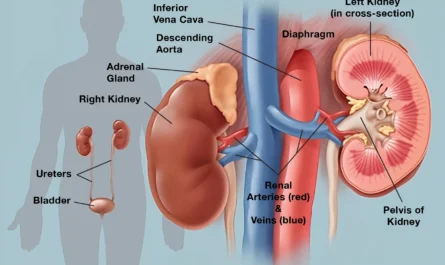New research conducted by scientists at the German Cancer Research Center (DKFZ) and the Weizmann Institute in Israel has revealed that mutations in the tumor suppressor p53 not only promote the growth of cancer cells, but also impact the cells in the tumor’s microenvironment. The study demonstrated that p53-mutated mouse breast cancer cells reprogram fat cells, leading to the creation of an inflammatory microenvironment that impairs the immune response against tumors, thereby facilitating cancer growth.
p53 is the most commonly mutated gene in human tumors, with around 30 percent of breast cancer cases exhibiting mutations or losses in this gene. These mutations hinder the ability of p53 to act as a cancer brake, preventing the development and progression of cancer cells. While the effects of p53 mutations in cancer cells have been extensively studied, the understanding that these mutations can also affect cells in the tumor microenvironment and contribute to cancer growth is still emerging.
The research team, led by Almut Schulze from the DKFZ and Moshe Oren from the Weizmann Institute, investigated the effects of p53 mutations in breast cancer cells on fat cells, also known as adipocytes. During the progression of breast cancer, adipocytes, which are one of the main cell types in breast tissue, undergo a transformation that can increase the aggressiveness and resistance to therapy of surrounding breast cancer cells.
By studying adipocytes from mouse breast tissue, Schulze and Oren’s team demonstrated that the cancer-promoting properties of adipocytes are enhanced when breast cancer cells carry p53 mutations. The team exposed immature adipocytes to a culture medium previously inhabited by breast cancer cells, both with and without p53 mutations. This treatment induced significant changes in the metabolism and gene activity of the adipocytes, resulting in an increased production of pro-inflammatory messengers.
Moreover, the maturation of the adipocytes was inhibited, while mature fat cells reverted to an immature stage. These effects were mild when the cells were treated with media from breast cancer cells with functional p53, but pronounced when exposed to medium from cells with mutated p53.
To further investigate the impact of p53 mutations, the researchers combined breast cancer cells (both mutated and functional p53) with pre-treated fat cells and transplanted them into mice. The resulting tumors showed increased numbers of immunosuppressive myeloid cells in the case of p53-mutated cancer cells. These immune cells exhibited higher levels of PD-L1 on their surface, which acts as a potent inhibitor of immune defense against tumors.
An unexpected finding from the study was that breast cancer cells with specific p53 mutations were able to directly or indirectly reprogram neighboring precursor fat cells to be even more pro-inflammatory than breast cancer cells lacking the p53 tumor suppressor entirely.
According to Schulze, p53 defects in breast cancer cells play a central role in reprogramming fat cells to promote tumors. As fat cells are a crucial component of breast tissue, they can significantly influence tumor progression. Therefore, understanding the interaction between p53-mutated cancer cells and adipocytes could provide valuable insights into halting the progression of breast cancer.
The findings of this study shed light on the complex relationship between cancer cells and their microenvironment, emphasizing the need for further research into the role of p53 mutations in tumor growth and potential therapeutic interventions targeting the tumor microenvironment.
*Note:
1. Source: Coherent Market Insights, Public sources, Desk research
2. We have leveraged AI tools to mine information and compile it




